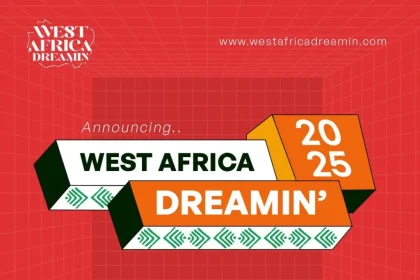Ten (10) teams of innovators from across Sub-Saharan Africa have been named finalists in the Afri-Plastics Challenge with solutions for reducing plastic usage. Each will receive £75 000 to invest in and develop their ideas. The winner will take home a first prize of £750,000 in January 2023, with the runner-up receiving £250,000 and third place winning £100,000.
They include projects to facilitate the reduction of single-use disposable diapers.
The Afri-Plastics Challenge, from innovation experts Challenge Works and funded by the Government of Canada, is rewarding the most promising Sub-Saharan African innovators working in the circular economy to develop ideas that will tackle the worrying rise in plastic pollution across the continent and in its marine environment.
Canada is a leader on the world stage through ongoing work to champion the Ocean Plastics Charter and membership in the Ocean Decade Alliance. With the longest coastline in the world and one-quarter of the world’s fresh water, Canada is uniquely positioned to lead in reducing plastic pollution and protecting ocean health. The government will continue to work with partners at home and around the world to protect the environment and build a healthy future for generations to come.
Tackling plastic pollution through three prize strands, the finalists in the second strand – Creating Solutions – announced today are being supported to develop innovative products that specifically reduce the volumes of plastic entering the value chain through ingenious and novel approaches.
Honourable Harjit Sajjan, Minister of International Development, Government of Canada, said:
“We must urgently reduce plastic usage worldwide. It’s clear that increasing pollution levels are devastating our shared environment. The finalists announced today in the Afri-Plastics Challenge demonstrate innovation and African entrepreneurialism at its best. I can’t wait to see how the innovative solutions proposed will reduce plastic usage and benefit the whole world.”
Constance Agyeman, Director of International Development, Challenge Works, said:
“Eradication of the plastic waste menace in the environment is critical to ensure resilient, sustainable communities. This calls for new solutions that go beyond traditional thinking. Today’s finalists are leading the way in dramatically reducing the volumes of plastic entering the economy to bear down on the avalanche of plastic waste that is engulfing Africa and its precious marine ecosystems.”
Having made their way through the semi-final round, each finalist has already received grants of £25 000 to develop their ideas. The 10 finalists will now receive a further £75 000 each to further advance and implement their solutions tackling the elimination of plastic usage across Sub-Saharan Africa.
The successful community-centred products and services have demonstrated a sustainable approach to reducing the reliance on plastic that also supports the empowerment of women and girls. The Afri-Plastics Challenge’s goal is that the development of the innovators’ solutions will encourage the creation of new, sustainable local enterprises, bringing economic opportunity to communities, while creating solutions with application across Sub-Saharan Africa and around the world.
To find out more about the Afri-Plastics Challenge and the 10 finalists in the Creating Solutions strand, please visit afri-plastics.challenges.org
The 10 finalists in the Afri-Plastics Challenge Creating Solutions strand
- Naza Agape Foundation, Nigeria
Naza Agape Foundation uses an innovative, ecofriendly approach to produce affordable and biodegradable sanitary pads that are made using banana fibre, a plant product that is an ideal substitute for the polypropylene used in conventional pads.
- Chemolex, Kenya
Chemolex’s Biopactic solution is a recyclable, reusable and 100% biodegradable next-generation material that replaces the use of single-use plastic polymers in food and product packaging as well as in manufacturing diapers. The biopactic material is a bio-based material that is produced from invasive water hyacinth plants that grow aggressively in Lake Victoria in Kenya.
- Uganda Industrial Research Institute (UIRI), Uganda
Uganda Industrial Research Institute manufactures biodegradable and biocompostable paper packaging bags from the long wasted agricultural fibres of the banana pseudo-stem, sugarcane bagasse, cereal crop straw (rice, maize and wheat), cotton waste / rags, and pineapple crowns, among others, as an alternative product to reduce the usage of the polythene bag.
- SHE ECO RESPONSE, South Africa
She Eco Response has developed the Wash, Hang and Store Kit, designed to reduce the stigma around reusable menstrual pads across Sub-Saharan Africa. Their kit consists of a washing board and a brush that will help women and girls rinse and wash the pads without twisting or tampering with the underlayer too much. This kit will encourage more women and girls to consider green menstruation across Sub-Saharan Africa.
- Toto Safi, Rwanda
Toto Safi’s app-based service offers reusable cloth diapers as a service so that parents do not have to choose between convenience and pollution. For many parents, reusable nappies are neither affordable nor convenient as they may lack adequate washing and drying facilities or are put off by upfront costs. This service is therefore reducing single-use disposable diapers, which are a major source of land and marine pollution.
- Lwanda Biotech, Kenya
Biotic is a sustainably sourced, bio-based, biodegradable bioplastic derived from blending fibre composites of agricultural waste/feedstock with a non-toxic, inert plasticiser. It looks, feels and functions like petroleum-derived plastic. Biotic is a direct drop-in replacement for plastic designed to fit into existing production infrastructure without requiring design modifications for particular use cases. Thus, it provides a sustainable approach to the elimination of plastic usage through direct substitution.
- Regenize, South Africa
Regenize, through Zero-Waste Spaza (ZWS), can plug into any existing informal shop and enables it to become a zero-waste shop where customers can shop without creating plastic waste. The customers will need to bring their containers to purchase goods supplied and stored in secured food-safe containers. Besides reducing plastic waste, it will also enable customers to live a healthier lifestyle.
- EcoCoCo Homecare, Kenya
EcoCoCo Homecare is spearheading the development of a range of multi-purpose everyday homecare products made from compostable natural coconut fibre. These will include scouring pads, scrubbing brushes and brooms with coconut fibre bristles. The coconut husk fibre is the outside of the coconut and is considered waste from coconut consumption and oil production. The bodies and handles of the brushes and brooms will be made from wood offcuts recycled from timber yards and commercial carpentry.
- Well of Science, Nigeria
ShoppersBag is a web and mobile app powering a community of shoppers, shopping malls, eco friendly bag producers and brands to reduce the usage and disposal of single-use plastics. The app allows users to earn rewards every time the bags are used.
- Derocolbags Packaging Limited Company, Ghana
Dercolbags Packaging Limited Company is developing a unique package-as-a-service system that educates households, communities and restaurants. They encourage exchange of packaging containers to reduce and eventually eliminate the use of styrofoams. Their Smartpacks will be distributed to participating restaurants, and participating households will receive their foods in the Smartpacks, while couriers will pick up used and washed Smartpack, which will be disinfected and cleaned for delivery to restaurants.










